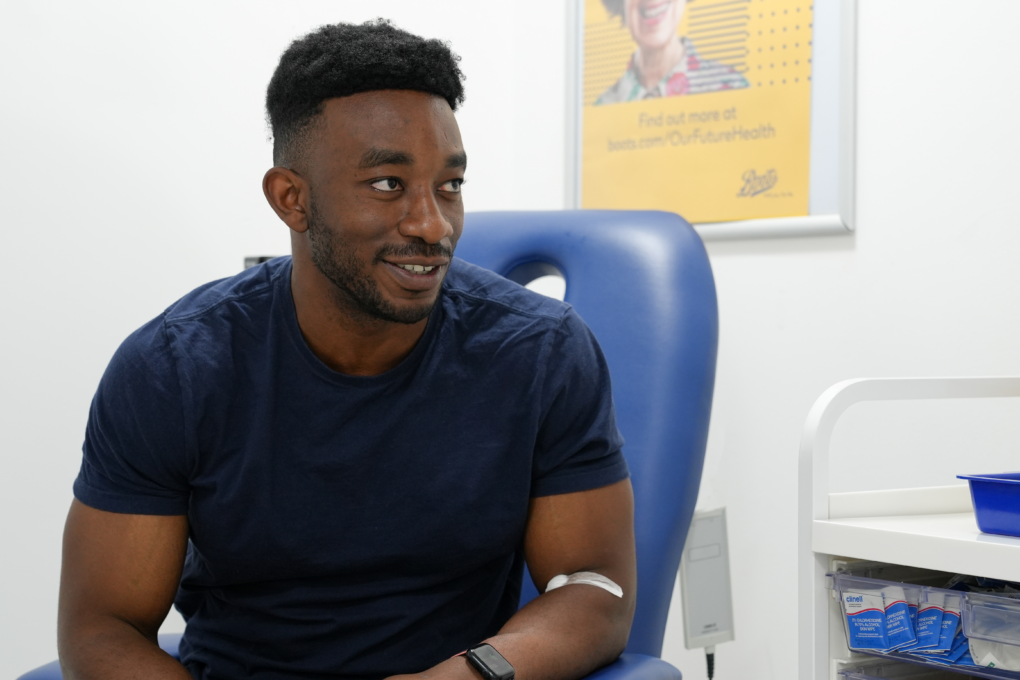How Our Future Health will help uncover the mysteries of prostate cancer

For a disease that affects so many lives, it can seem as though we know relatively little about prostate cancer.
The numbers speak for themselves. In the UK, it’s the most common cancer in men, with over 52,000 cases diagnosed every year on average. Every 45 minutes, one of these men in the UK dies from their disease.
Yet, in many ways both the prostate, and the cancer associated with it, remain a mystery. If you ask a man about his prostate, it’s possible he won’t be able to tell you about this small gland that produces seminal fluid. A 2016 survey by Prostate Cancer UK found that 92% of men did not know what the prostate gland did, and 17% didn’t know they had one.
The healthcare system has its own unanswered questions. Doctors have tests and treatments for prostate cancer, but their accuracy and efficiency is debated. Health research has also not yet identified the causes of the disease, or why some people, such as Black men, are at higher risk.
However, Our Future Health is providing cause for optimism. As the UK’s largest ever health research programme, it will offer the tools that researchers need to crack the nut of prostate cancer.
The prostate cancer pathway today
“For doctors right now, the first problem with prostate cancer is that the test we use to diagnose it doesn’t tell us everything we need to know,” says Dr Michael Cook, Executive Director of Science at Our Future Health.
The Prostate Specific Antigen (PSA) test works by analysing a patient’s blood for traces of a biomarker produced in the prostate. If the biomarker is detected, it can indicate that the patient is developing prostate cancer. However, as Dr Cook says, “PSA isn’t always dependable. People’s levels naturally increase with age. PSA can also be high due to benign (non-cancer) conditions. And we know that some men with aggressive prostate cancer will not have a raised PSA level at all.”

There is no screening programme for prostate cancer in the UK. Instead, the healthcare system waits for patients to ask for a PSA blood test, either because they recognise they are at an increased risk due to age, ethnicity or family history, or they report symptoms, which can include trouble passing urine and erectile dysfunction (although it’s important to note that most early stage prostate cancers do not cause symptoms). If the patient’s PSA levels are high, they are sent for an MRI scan, and a biopsy.
After a biopsy, the patient may be diagnosed with prostate cancer – and this is where we find the second problem that doctors face. “We don’t have reliable ways of predicting which cancers will progress. Many prostate cancers never cause symptoms or death – they grow slowly and stay within the prostate. Currently, we’re not good enough at identifying the prostate cancers that patients can live with.”
So, what do doctors do? “It’s more straightforward with aggressive prostate cancer,” says Dr Cook. “The cancer has a high risk of leaving the prostate and significantly limiting lifespan, so those patients normally have treatment which may involve surgery or radiation therapy. These treatments often impact the quality of life, but they extend lifespan.”
It’s harder with less aggressive prostate cancer. Do you opt for treatment, or live with the cancer and monitor it? Doctors decide in conversation with their patients, but there’s an element of unpredictability. “Researchers need to develop better tests to improve the risk information that can be personalised to each patient,” says Dr Cook. “It will enable them to make more informed choices about whether to undergo treatment.”
It Is here where Our Future Health comes in.
A better path ahead
Our Future Health aims to help people live healthier lives for longer, by providing researchers with the information they need to find new ways to prevent, detect, and treat common diseases – including prostate cancer.
The programme is gathering health information from up to five million adults from across the UK. Each volunteer fills out a questionnaire about their lifestyle, gives their permission for this information to be linked to their health records, and attends an appointment at a clinic. During their appointment, volunteers have some measurements taken, including their blood pressure and cholesterol levels, and they donate a small sample of blood.
Dr Cook explains how the information will help drive improvements in prostate cancer healthcare.
“The first step is to get better at identifying who is at risk. Our Future Health’s volunteers are genotyped, which means we can combine their genetic information with their lifestyle information. Researchers will be able to find new patterns among different groups of people – ethnicities, socio-economic groups, geographic location, etc. Those patterns can be used to create better risk calculators, so we can better predict who is likely to develop prostate cancer.
Of course, identifying people at risk is only so useful when the diagnostic test is inefficient. “Our Future Health will help researchers improve the PSA test because we store our volunteers’ blood and link their health records,” says Dr Cook. “Let’s say 100 people from a specific community are diagnosed with prostate cancer four years after they join the programme. Researchers can apply to analyse their samples, to see whether there was something in their blood that indicated they were on a path to prostate cancer and, potentially, whether this cancer is aggressive.
“The size of Our Future Health’s resource, and the availability of pre-diagnostic samples, help researchers develop new biomarker tests that may radically improve patient care.”
Those samples will also help improve the final stage of the pathway – treatment. “We may be able to look at different proteins and other biomarkers that are elevated before diagnosis to see how aggressive the cancer is,” says Dr Cook. “Plus, researchers will be able to ask our volunteers if they would like to take part in further studies.”
“In the future, we’ll be able to better predict which prostate cancers require treatment and which don’t. It will be better for the patient and more efficient for the healthcare system.”
‘Prostate cancer is a concern for men like me’

Dr Amos Ogunkoya explains how his knowledge of prostate cancer helped him decide to volunteer for Our Future Health:
“Losing my grandad to prostate cancer when I was just 12 years old played a big part in my choice to go into a career in medicine. I wanted to understand more about the body and diseases like cancer so that I could help people – I still do.
For me and other men of Black ethnicity, prostate cancer is a huge concern. We know there’s a 1 in 4 risk of being diagnosed with prostate cancer for Black men and that’s why it’s recommended that we start getting PSA blood tests earlier – from the age of 45. There’s definitely a stigma around getting checked and I think it’s because men feel embarrassed about the prostate exam. But it’s a moment of discomfort that could save your life.
I’m excited about Our Future Health because I can see it leading to new, preventative treatments and better health outcomes for everyone – including people who have been previously left behind in health research.”
Why Prostate Cancer UK is partnered with Our Future Health

Prostate Cancer UK is one of the numerous charities that are partnered with Our Future Health, to help people live healthier lives for longer.
“Every year in the UK, more than 9,500 men are diagnosed late, with prostate cancer that has already become advanced,” says Dr Matthew Hobbs, Director of Research at Prostate Cancer UK. “That’s why it’s vital that we transform diagnosis of the disease as quickly as possible.
“With five million people taking part, Our Future Health could be revolutionary. This huge pool of data will help drive our future research and better understand the genetics behind prostate cancer development. We look forward to continuing to work with the Our Future Health team and other partners in this programme to drive as much benefit for men at risk of prostate cancer now and in the future.”
To find out more about prostate cancer, visit prostatecanceruk.org

Let’s prevent disease together
By volunteering for Our Future Health, you can help health researchers discover new ways to prevent, detect and treat common conditions such as diabetes, cancer, heart disease, stroke and Alzheimer’s.